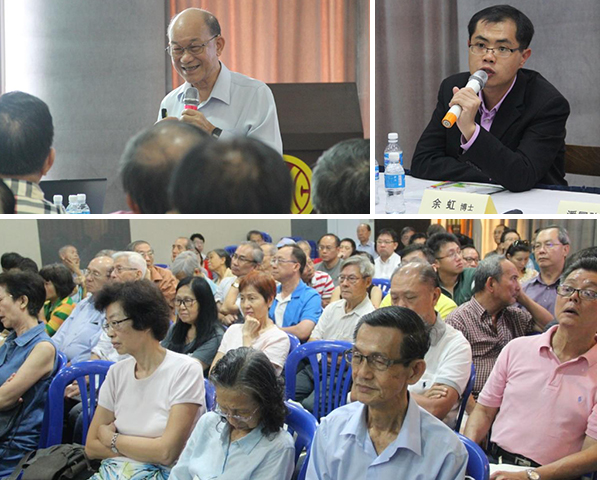On 25th February 2017, at 2.30pm, SCFA, Ee Hoe Hean Club, Institute of Advanced Studies (NTU) and Tan Kah Kee Foundation co-organized the "One Belt One Road" Talk No. 5, themed "Energy along One Belt One Road". The speakers were Prof Lim Hock (Senior Fellow of Institute of Advanced Studies, NTU, Director of Singapore Nuclear Research and Safety Initiative, NUS) and Dr Yu Hong (Senior Research Fellow of East Asian Institute, NUS). The Talk was chaired by SCFA President, Prof Phua Kok Khoo.
Prof Lim discussed about the developments of nuclear energy in China and ASEAN. He believed that, to fulfill the needs of economic development and to reduce carbon emission and pollution of fossil fuels, China is leading the world in development of nuclear technology. Meanwhile, in ASEAN, the countries like Vietnam and Indonesia have signed agreements with nuclear technology service providers respectively. Malaysia and Thailand also included nuclear powers as part in their energy development plans. For Singapore, although the demands for nuclear energy are low, Singapore should look into more and deeper researches in this sector, to be well prepared when facing the issues or challenges arising with nuclear energy developments in this area.
Dr Yu's talk focused on the challenges facing the international cooperation in the field of energy under the "One Belt One Road" initiative. In developing countries, Energy plays a very important role. Although some countries have plentiful resources, they lack of a ready and complete energy conversion system. And hence, energy sector constitutes a large proportion in this OBOR initiative. China has been very actively engaged with the countries along the Belt and Road, exploring for cooperation in energy sector. This will not only help to relieve the excess capacity within China itself but also contribute to the economic development of the countries.
The Talk ended at 4.30pm, attracted more than 250 audiences.
